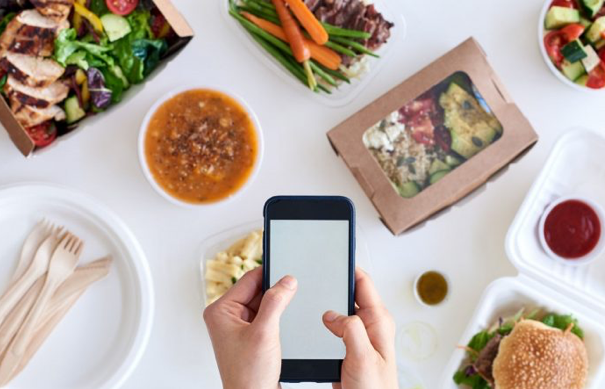Restaurants can offer their own direct delivery service, or partner with third-party providers, both options being costly. Third-party delivery is usually the preferred solution, as the technology and logistics are established and streamlined, and they offer a wider customer base. However, the fees and commissions for the service cut into already narrow profit margins and are a growing concern industrywide.
Last mile delivery
Last-mile delivery is a product’s journey from warehouse shelf to customer doorstep. Food adds an additional layer of complexity as it is fragile, fresh, hot or cold and the consumer wants it fast. This is the most expensive and time-consuming part of the shipping process.
Innovation
Uber Eats are testing drones to speed up meal delivery. Delivering to a drop-off location where it is met by a delivery driver, cutting the last-mile delivery in half.
In the US companies are testing AI, drones, robots and autonomous vehicles to solve delivery challenges and enhance efficiency.
In Milton Keynes, Robots have been delivering groceries from the town centres shops to residents.
Ghost kitchens
Ghost kitchens are solely used for delivery preparation and are helping restaurants increase production and better scale delivery services, all without burdening in-dining kitchens to meet supply. In the case of Deliveroo, the restaurants provide the chefs and Deliveroo provides the equipment, power, kitchen porters and site managers, they sign 5-10 year leases on sites and aims to have them up and running within 12 weeks. In London this could offer a 90% or more reduction in costs than operating from a traditional restaurant and allows a restaurant to reach customers in almost any location. A single operation can ship over 2,000 dishes per day.
Kitchens can be found on underused spaces such as industrial sites, car parks and brownfield land, dotted around the UK. They tend to offer a better-quality product due to the streamlined and dedicated process, even if this means the meal doesn’t come directly from the restaurant itself.
Shared kitchens are also on the increase, described as “WeWork for kitchens”, they rent out space to different businesses at different times of day according to demand and service. A London based shared kitchen space can cost about £1,500 a month, compared with tens of thousands of pounds upfront to build a new kitchen.
A further kitchen start-up concept backed by Google charges a monthly membership fee that includes the premises, back-of-house services i.e. dishwashing, and access to its technology system for processing online orders from a range of delivery apps. This cuts the labour cost by 75-80%.
Expansion and innovation in food delivery are a form of how the shared economy is becoming more prevalent in all areas of modern-day life. Allowing technology the space to innovate and encouraging greater efficiency in the market, helping businesses to get the most out of their operations.
We at Consulco ensure we keep up with key trends in the industry, which
